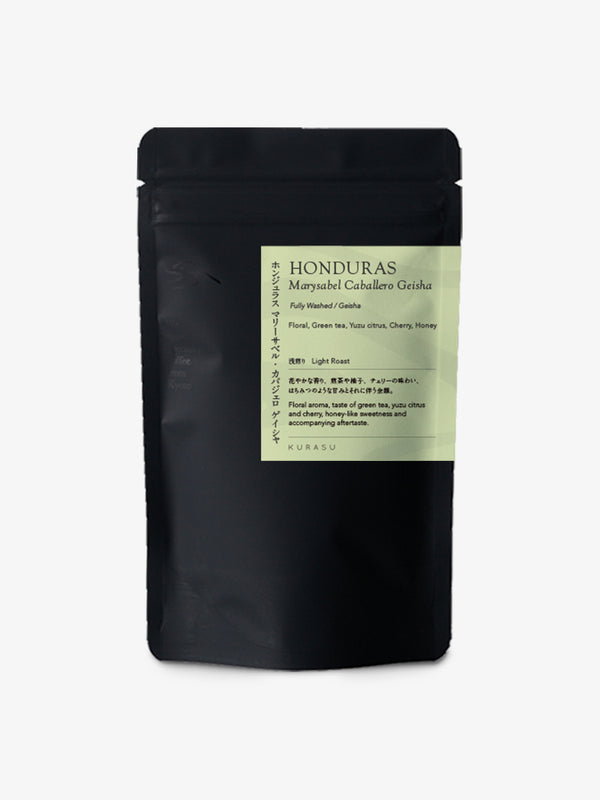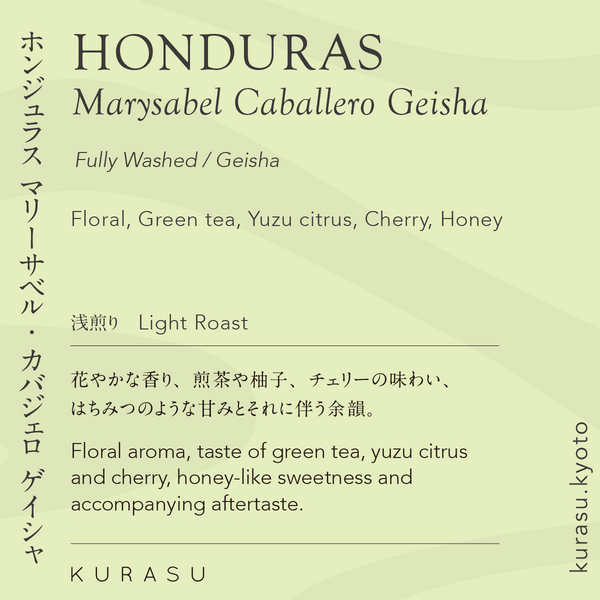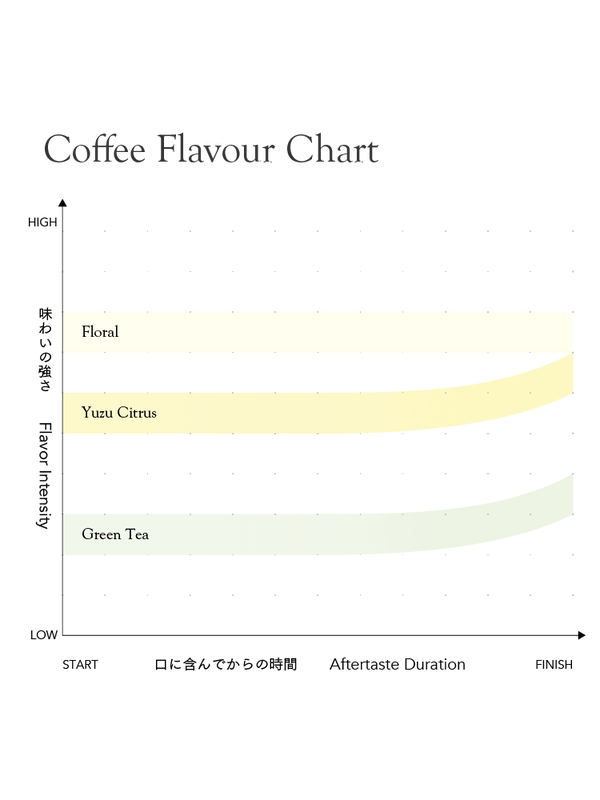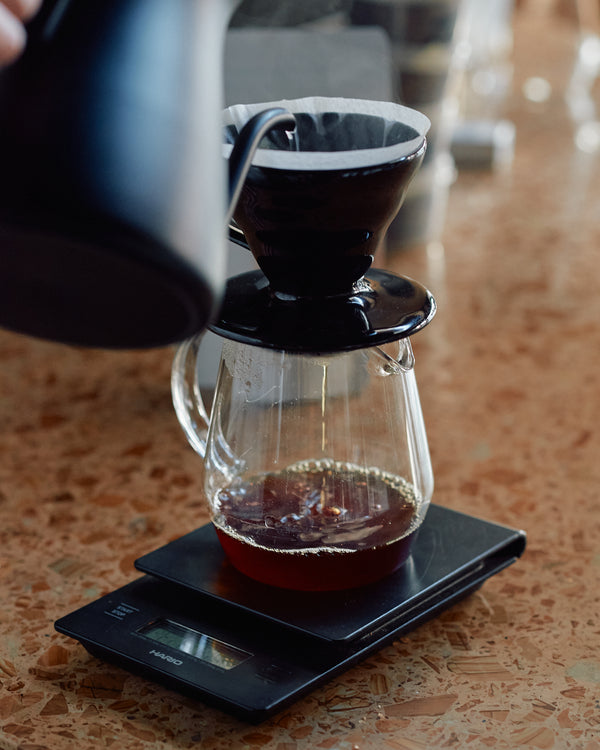KURASU ROASTERY
KURASU - Marysabel Caballero Geisha | Honduras - Washed - Geisha
KURASU - Marysabel Caballero Geisha | Honduras - Washed - Geisha
 Origin: Honduras
Origin: Honduras
 Tasting Notes: Floral, Green Tea, Yuzu Citrus, Cherry, Honey
Tasting Notes: Floral, Green Tea, Yuzu Citrus, Cherry, Honey
 Process: Fully Washed
Process: Fully Washed
 Varieties: Geisha
Varieties: Geisha
 Farm: Marysabel Caballero y Moises / Finca Laguna
Farm: Marysabel Caballero y Moises / Finca Laguna
 Region: Pedemal, San Jose, La Paz
Region: Pedemal, San Jose, La Paz
 Elevation: 1600 masl
Elevation: 1600 masl
 Roast Profile: Light
Roast Profile: Light
 Recommended Brew: Filter
Recommended Brew: Filter
 Roast Date:
Roast Date:
Couldn't load pickup availability
Karasu Roastery is located in Kyoto, Japan
From KARASU
Floral aroma, taste of green tea, yuzu citrus and cherry, honey-like sweetness and accompanying aftertaste.
Roaster's Note
This is our very first Honduran Geisha.
While we value many things when we make purchase decisions, especially for Geisha, we like to focus on how much the terroir and the variety’s characteristics are expressed through the product.
This lot from Marysabel-san has a green tea like nourishing feel signature of Honduran coffee and Geisha’s floral aroma. It is very much a “Honduran Geisha” - while it’s hot you will find bergamot and cherry, and as it cools down a yuzu marmalade tea like feel emerges.
It is not flamboyant, but it is delicate, and it’s a coffee worth taking time to enjoy as your “daily Geisha.”
Marysabel Caballero was born into a family where coffee was always a part of their everyday life.
In 1910, her great-grandfather, Felipe Garcia, began exporting coffee to Germany in exchange for groceries.
The farm was then passed down to her grandfather, then her mother, and is now in the hands of her and her husband, Moises Herrera.
Moises’ first step in the coffee industry was made in 1986, when he started to work in Guatemala as a coffee exporter, followed by a transfer to Marcala, Honduras, where he met and married Marysabel, and from there their farm project began in 1996.
Ever since, they have been working hard producing high quality coffee, winning several first place awards at Honduran COE and becoming a wonderful role model for all Honduran producers with their dedication, innovation, and passion for coffee.
Once harvested, the cherries go through a vertical pulping machine and are dry fermented in concrete tanks for 12-16 hours.
The coffee is then washed and excess water is removed in a centrifuge before proceeding to the drying process.
Larger lots are “pre-dried” on a patio for 3-5 hours and then placed in the Guardiola (mechanical drying) for 70-80 hours.
Micro lots, however, are rinsed and then placed on an African bed to dry for 11-15 days.
Share








